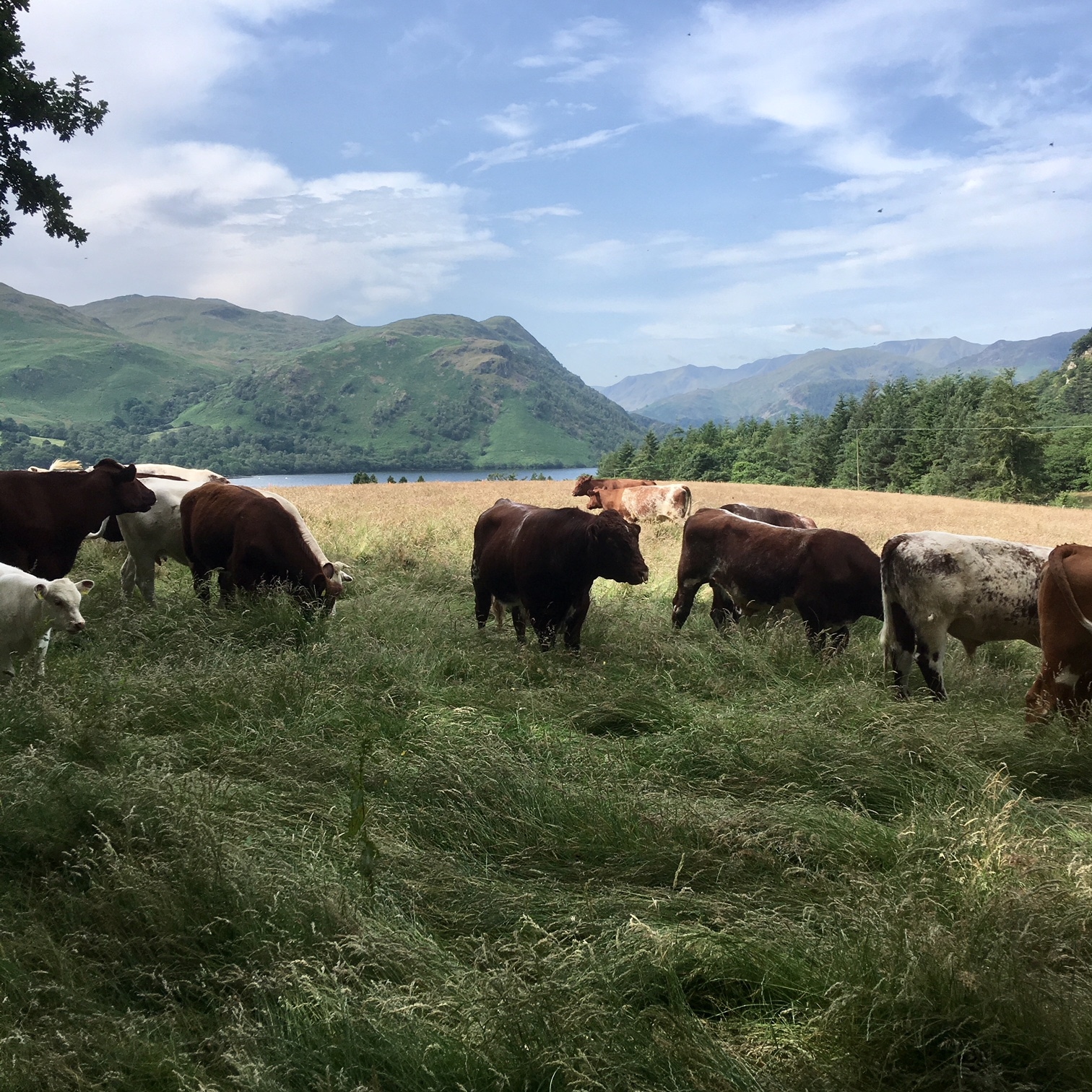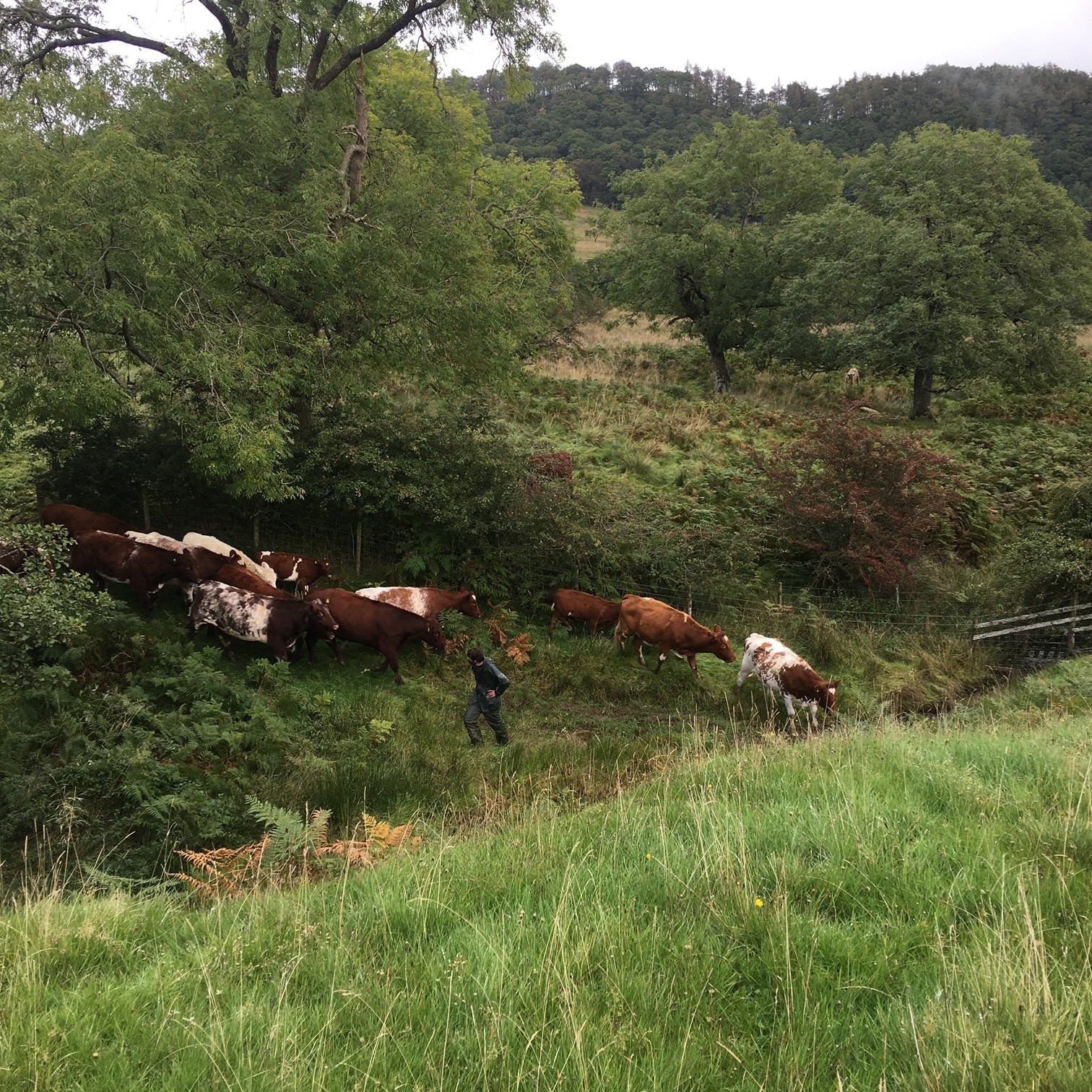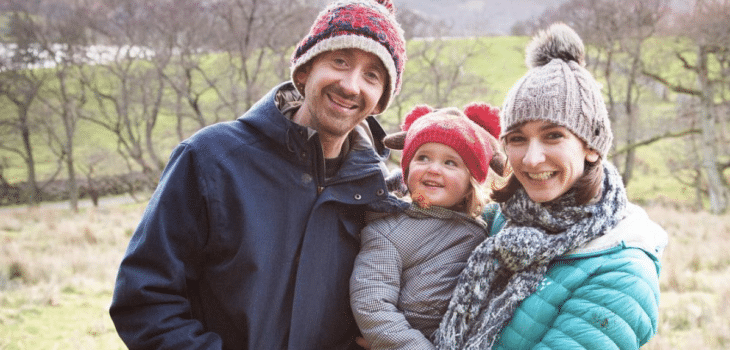Wilder Gowbarrow
Gowbarrow Hall Farm is a family run farm on the south facing shores of Ullswater in the Lake District. The farm is under the management of Sam and Claire Beaumont, as the third generation, who are passionate about maintaining the natural beauty of the landscape and enriching the wildlife that falls within it as well as ensuring the farm can sustain itself as a business, producing high quality food. They are caring for the environment and are conscious of how farming fits within the wider global issues that our planet is facing.

Wilder Gowbarrow is a hybrid of rewilding and regenerative grazing.

Our Project Aims:
Ecosystem Processes
To manage two distinct management blocks; one half of the farm will be encouraged to regenerate back to wood pasture and woodland. On the other half we will be using regenerative grazing to improve farm productivity and transition to species rich grassland.
In both areas we will be focusing on increasing the effectiveness of ecosystem processes rather than managing for a particular species.
Climate Support
To support climate cooling functions through the building of healthy soils. Through regenerative grazing we will be sequestering carbon in stable structures underground.
By keeping healthy soils covered with green growing plants and encouraging a diversity of habitats, including trees, we can support the cooling hydrological functions responsible for 95% of the heat dynamics of the planet.
Nutrient Cycling
To ensure that as many of the full spectrum of nutrients needed for optimal plant and animal health are in stable but available forms and are quickly recycled. Through proper nutrient cycling we can increase the disease resistance and productivity of the whole food web from beetles and birds to cattle and trees.
Truly Sustainable
To help support the family owners in creating a resilient and profitable enterprise that will ensure this management is truly sustainable.
To develop a model that can be scaled and replicated over hill farms throughout Northern Britain.
Regeneration or Planting?
In the parkland areas we will be predominantly encouraging regeneration over and above planting. We will however be planting a small number of landscape trees with guards and experimenting with ‘tree hedgehogs’ where a ring of willow is used to protect more palatable combinations of trees within.
The regenerative grazing meadows will be subdivided with hedgerows and woodland blocks to create wildlife corridors and important seed banks.
Productivity
To demonstrate that we can achieve ecological restoration whilst improving farm productivity and profitability.
Unlike conservation grazing which generally requires low numbers of livestock over large areas, we are using a combination of high density grazing with very long recovery periods (up to a year) and mixed species grazing with cattle, ponies and pigs.
Why Production?
In the UK uplands there has been a significant loss of biodiversity and a call from some to reduce or remove livestock – especially sheep – and instead adopt rewilding on these less productive areas. However, in the green and pleasant UK, environmentalists must be careful not to forget that the UK is part of the larger global ecosystem and what impacts the world will influence the long-term future of UK land. Major factors that are influencing world agriculture are;
- Global agricultural land is rapidly diminishing, increasing the reliance on moister climates to sustain a hungry global population.
- Globally we are losing 10 tons of soil for every ton of food produced with the FAO stating we have less than 60 global harvests left.
- Over 75% of the Earth’s land area is already degraded, and over 90% could become degraded by 2050.
- Globally, a total area half of the size of the European Union (4.18 million km²) is degraded annually, with Africa and Asia being the most affected.
Any large scale moves to remove upland areas from food production could have serious repercussions in the future for humanity as a whole.
Although the uplands are marginal in agricultural terms producing a small volume of calories and protein when compared to arable crops, the nutrient density of the meat produced is higher than any other food – a hugely important factor in creating truly sustainable nutrition security.
As we see intensification of food production on our depleted arable land and a shift in diets towards nutrient poor grain-based food, ensuring we have a sustainable supply of nutrient rich healthy foods from land that is unsuitable for plant food production is essential.
How we graze and manage livestock however cannot continue as ‘business as usual’ with further soil and biodiversity loss. Regenerative farming has an impressive record for turning degraded land into healthy ecosystems that can also produce food over millions of acres globally, but so far there has been no trials of how this could be applied in the UK uplands at scale which is why the Gowbarrow project is an exciting opportunity.


